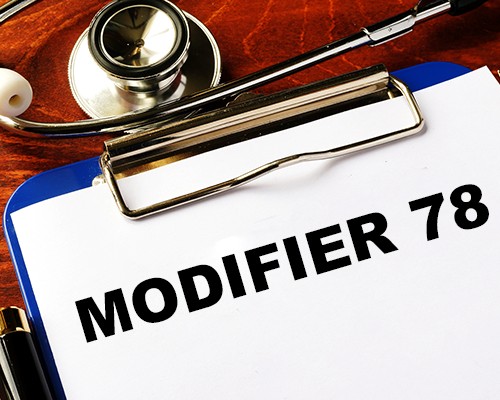Modifiers can be extremely confusing, especially when it comes to deciding which one to use. Selecting the wrong one can lead to payment denials from insurance companies and puts practices at risk for payers requesting refunds. Today’s spotlight is on modifier 78.
What is Modifier 78?
Modifier 78 is one of the easier modifiers and relatively straightforward. It’s used when there’s an unplanned return to the operating room by the same physician following an initial procedure. A related procedure is then performed during the post-operative period. This is typically used when complications arise following a treatment.
When to Use Modifier 78
The only main reason to use modifier 78 is when complications arise that send a patient back to the operating room. This happens during the post-operative period, and the secondary procedure is related to the first one. The second procedure wasn’t known to be needed until after the first.
Examples of When to Use Modifier 78
Let’s first join Colleen. She just underwent a cesearan section to deliver her baby. However, she began bleeding excessively and had to undergo a second procedure to stop it. This falls under this modifier because the second procedure wasn’t planned or expected.
Let’s now join Leonardo, who went to the operating room to have cataracts removed from his eyes. His vision returns to normal after his procedure, but his left eye requires a YAG laser capsulotomy. This falls under this modifier because it was performed by the same physician in the post-operative period, but the second procedure was also unplanned.
When NOT to Use Modifier 78
Sometimes, it’s easier to know when not to use a specific modifier. Below are examples of what would not constitute the use of modifier 78:
- The procedure is planned or staged during a previous procedure
- The procedure is unrelated to the previous one
- The procedure doesn’t occur during the post-operative period
- A different physician performs the procedure
- The procedure isn’t performed in the operating room (an OR can include an endoscopy suite, cardiac catheterization suite or a laser suite)
Compared to 24, 58, 59 and 79, modifier 78 is relatively straightforward. The biggest takeaway is there’s a second unplanned and related procedure performed by the same physician in the post operative period.



